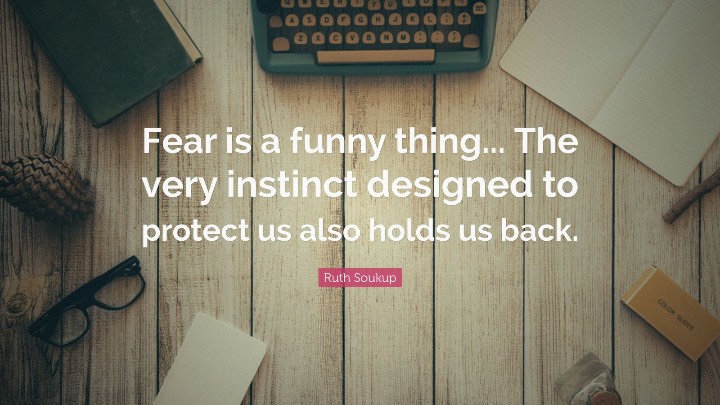
This statement presents a thought-provoking commentary on the dual nature of fear, its evolutionary significance, and its impact on human behavior. Let's explore and comment on this insightful observation:
- "Fear is a funny thing": This opening phrase immediately grabs attention by characterizing fear as something paradoxical or unexpected. It sets the stage for a deeper exploration of the complex role fear plays in our lives.
- "The very instinct designed to protect us": Here, the statement acknowledges that fear is an inherent and essential human instinct. Evolutionarily, fear has served as a survival mechanism, alerting us to potential threats and dangers. It has played a crucial role in helping humans avoid harm and ensure their survival.
- "Also holds us back": The phrase "holds us back" suggests that fear, while initially beneficial for survival, can become a hindrance in modern life. It implies that fear if left unchecked, can limit our potential, hinder personal growth, and prevent us from taking risks or pursuing opportunities.
This statement offers several valuable insights:
- The Duality of Fear: It highlights the dual nature of fear, emphasizing that it serves both protective and inhibitive functions. Fear is like a double-edged sword; it can be a powerful motivator for self-preservation, yet it can also become a barrier to progress and personal development.
- Evolutionary Significance: Fear's role as a protective instinct has been vital in the evolutionary history of humanity. It has enabled our ancestors to survive in a world fraught with dangers. Understanding this evolutionary perspective can help us appreciate the origins of fear.
- Limiting Beliefs and Comfort Zones: The idea that fear can hold us back underscores the concept of comfort zones. People often avoid stepping out of their comfort zones due to fear of the unknown, failure, or rejection. This statement encourages us to reflect on the ways fear may be limiting our potential.
- Empowerment and Self-Awareness: Recognizing the impact of fear is the first step toward overcoming it. By understanding how fear can both protect and hinder us, individuals can work on managing their fears and making more informed decisions.
- Balancing Fear: While it's essential to acknowledge the protective role of fear, it's equally important to strike a balance. Learning to differentiate between rational and irrational fears can help individuals make better choices and take calculated risks.
This statement invites us to reflect on the intricate interplay of fear in our lives. It encourages us to be mindful of our fears, understand their origins, and take proactive steps to harness their protective aspects while transcending their inhibitive influence. Ultimately, it challenges us to confront and overcome the barriers that fear can create, enabling personal growth and fulfillment.
#FearAndFreedom #FacingOurFears #DualNatureOfFear #OvercomingObstacles #FearAndCourage #EmbraceTheUnknown #FearlessLiving #BalancingAct #FearVsPotential #MindOverFear #FearfulAndFearless #FearToGrow #EmpowermentJourney #SelfAwareness #ComfortZoneChallenge #InnerStrength #RiseAboveFear #ConquerYourFears #FearIsNotTheEnemy